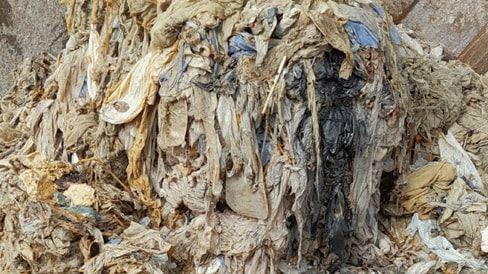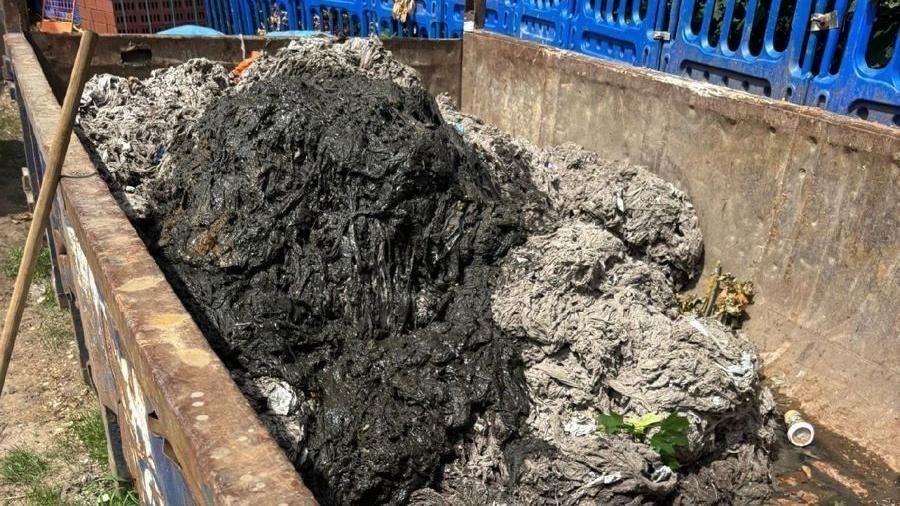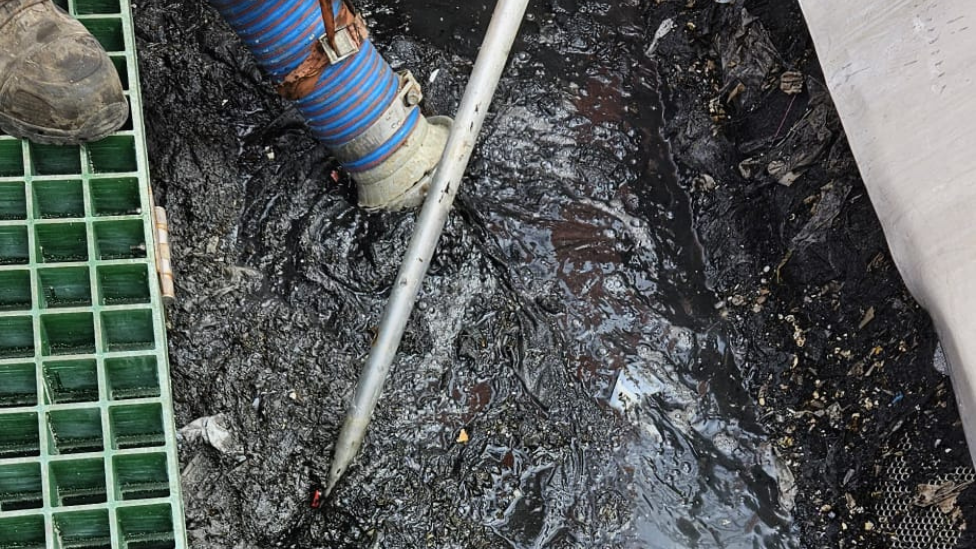Water firm's plea over 7,000 blockages and fatbergs

South West Water said in the past year it had cleared more than 7,000 avoidable blockages
- Published
South West Water has asked customers to help prevent blockages and fatbergs from forming as part of a new campaign.
The water company said fats, oils and greases when mixed with items such as wet wipes, sanitary products and food waste flushed down the toilet or drains could create blockages.
In the past year it said it had cleared more than 7,000 avoidable blockages from its network - with three quarters caused by wet wipes and fats.
Jenny Eamer, waste water services operations manager at South West Water, said: "Blockages might sound like something out of a horror story but they're very real, and they start with the choices we all make at home and at work."
The month-long campaign, which started in October, aims to encourage people and businesses to prevent drain blockages and protect waterways by disposing of waste responsibly.
South West Water said wet wipes, even those labelled "flushable", did not break down like toilet paper.
When mixed with fats and oils they can clump together and form solid blockages which can, over time, grow into fatbergs, causing flooding, unpleasant odours, pollution in rivers and seas, and damage to the sewer network.
Environmental Compliance and Services partners with South West Water and has worked with more than 2,000 food and service establishments, and 578 grease traps have been installed as a result to help reduce blockages.
South West Water said people could help prevent the issue by only flushing human waste and toilet paper away, and using the bin for other items.
Follow BBC Cornwall on X, external, Facebook, external and Instagram, external. Send your story ideas to spotlight@bbc.co.uk, external.
- Published6 October

- Published6 August
